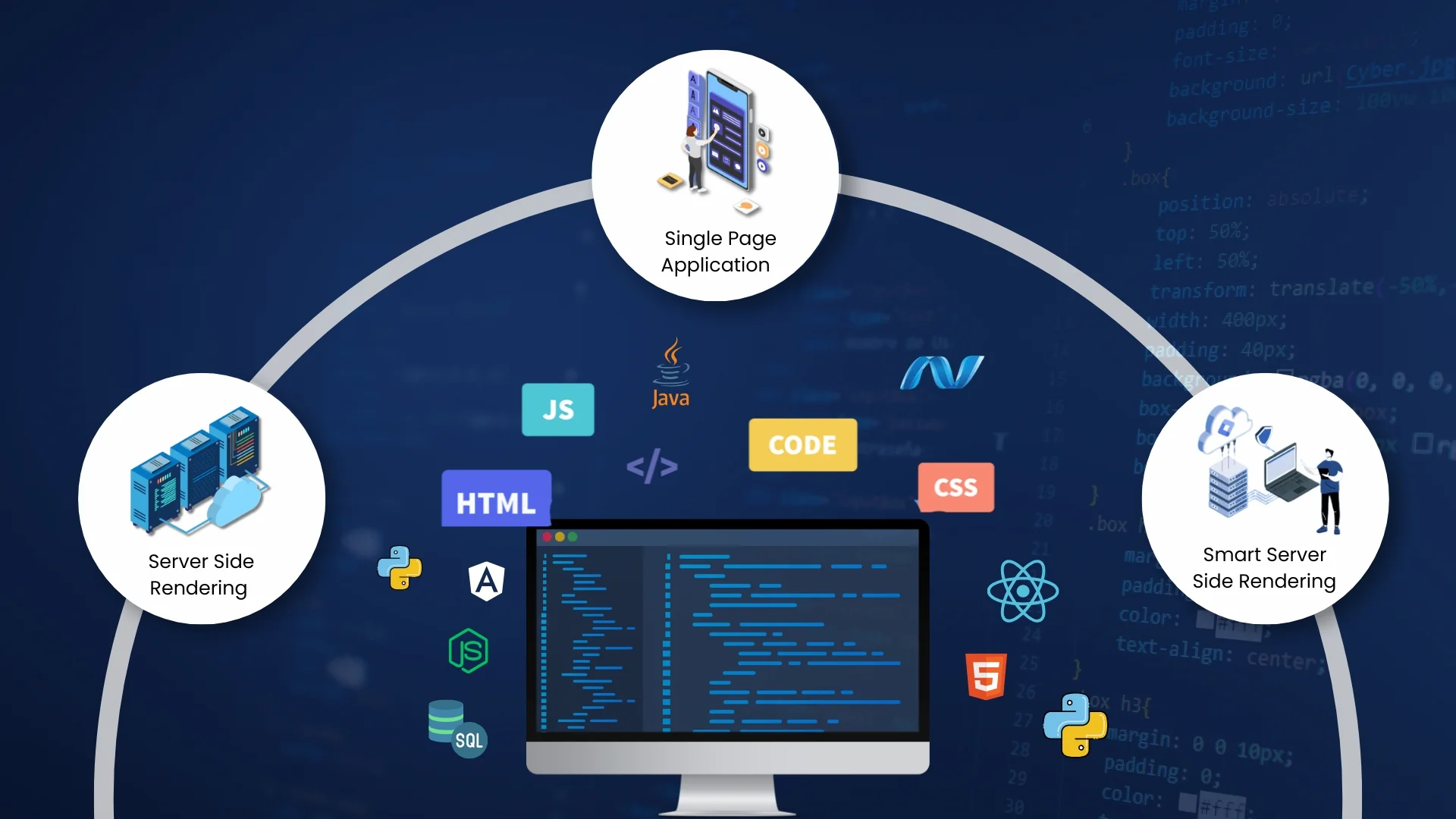Introduction
Today, technology is advancing at an unprecedented pace, however technology and the underlying software that makes technology relevant play a significant role in our everyday lives on a daily basis. We are living in an era of data, not just data, but Big Data. Data will be the key to developing better solutions that address our toughest challenges in the coming years. Whether it is earthquake predictions, early detection of disabilities in children, early diagnostic of diseases, or business & financial trends, the science and research involved in the data around us is the key to addressing the pressing issues that can make people live better. Rapid advancement in technology has significantly enhanced the ability of companies across the globe to produce data that kept accumulating on a large scale. The vast majority of the tech industry as a whole recognizes this and are coming up with innovative methods to gather data that can aid in making critical business decisions.
Today, businesses collect an unprecedented amount of big data from every imaginable source and field that they are able to monitor digitally. It is no secret that companies oriented towards maximizing their results collect data and generate KPIs to monitor their businesses and measure the results of their strategies, processes, and projects. The challenge escalates when you are dealing with large enterprises where datasets generated globally have become huge & complex and moreover different departments have their own perspectives about process performance, business trends, the use of different sources of data collection, implementation of various data cleansing procedures, and use of different formulas to calculate the identical KPI’s that traditional BI solutions just can’t handle them. Often, businesses are forced to either compromise the quality of their insights by limiting the analysis to a specific number of variables or to invest a lot of time and energy into data preparation, analysis, and developing a model to get more in-depth, granular information. This is where Augmented BI comes in; it involves the fusing of BI with Augmented Analytics powered by AI & ML to automate the processes of locating data, gathering it, preparing it for analysis, and generating insights from it.
Before moving further, let look at
Table of Contents
What is Augmented Analytics?

Our daily lives have become increasingly reliant on analytics. Be it monetization or measurement; analytics is crucial to creating and identifying value in our organization. Augmented analytics is a type of analytics powered by artificial intelligence (AI) and machine learning (ML) to extend a human’s ability to interact with data in a more contextual manner.
Augmented analytics consists of a set of tools and software that makes analytical capabilities more accessible to wider individuals, whether it’s through recommendations, insights, or query guidance. Augmented analytics empowers businesses to break down and transform large data sets into smaller, more digestible information through utilizing statistical and linguistics technologies. Augmented analytics goes beyond simplifying data analysis on the backend. Using natural language generation (NLG) provides insights and visualizations that make data more accessible and useful to the average user. Machine learning (ML), artificial intelligence (AI), data insight, and augmentation are combined in order to explore how analytics can be built, consumed, and shared. As a matter of fact, augmented analytics allows data analysts and citizen data scientists to extract deeper, more granular insights in less time than professional data scientists in the same amount of time with a traditional BI solution.
Augmented analytics has become something that all modern organizations need from BI because its capabilities exceed beyond querying, reporting, data visualizations, and basic descriptive and diagnostic analytics. Augmented BI introduces a variety of powerful new emerging capabilities empowering users to become citizen data scientists by leveraging ML (machine learning) and extending the reach of data and analytics to all decision-makers through conversational UIs.” With augmented BI in place, all business stakeholders can make a better decision faster, which in turn gives companies a competitive advantage in the market.
In fact, when we closely look at the market trends, here are some of the reasons why there has never been a better time for an augmented BI platform than right now.
Mining the Big Data opportunity

Data represents the greatest opportunity for today’s businesses, and the modern economy is driven by data. Businesses can use data to predict what to produce when, to whom to market, and how to evolve, among many other things. Unfortunately, the enormous amount of data available today is simply too overwhelming for humans to understand and decipher on their own or without bias. Furthermore, it also makes it impossible to meet the needs for immediate answers. In the sea of Big Data, enabling technologies like artificial intelligence and machine learning are essential for uncovering meaningful insights. One of the reasons why augmented BI is so important because it combines data science and artificial intelligence to facilitate the analysis of huge data sets in real-time.
Reducing reliance on data scientists

The analytic process of collecting data from multiple sources, preparing it for analysis, performing the analysis, finding meaningful insights, visualizing findings, sharing findings in a compelling way and creating an action plan involves a series of manual, tedious and time-consuming steps that are so complicated that they are usually only accomplished by data scientists. Unfortunately, there is a major shortage of data scientists globally, and hiring them is extremely expensive. Although augmented BI does not replace these professionals, they can reduce your dependence on them by automating data collection, preparation, cleaning, and analysis processes. At the same time, augmented BI does all the heavy lifting and frees up data scientists and data analysts time to spend on things that matter the most, like interpreting results. Analytics powered by artificial intelligence and machine learning will enable analysts to make connections that would otherwise go overlooked and uncover deeper insights in less time. Furthermore, employees in other roles can also benefit from these technologies – from business analysts to citizen data scientists – by improving their insights and enabling them to perform tasks previously reserved for data scientists.
Democratization of Data

Democratization-of-Data
In addition to being important, augmented BI platforms are great because of the fact that they allow untrained people to become data explorers. Users without special data science skills are able to leverage advanced analytics via automated complex analytics processes and by querying data simply by asking questions. Machine learning can assist these data explorers by suggesting which questions to ask next and where to dig deeper. Augmented BI platform comes with prebuilt models and algorithms so that businesses don’t depend on data scientists or IT to do this work. Users and executives can easily interact with the tools due to their user-friendly interfaces. Users don’t have to create their own data visualizations when using an augmented BI platform that provides answers to queries with pre-made data visualizations, such as charts, graphs, and maps. Visualizations are easily explored by using simple commands, stringing them into data stories, and sharing them easily with leadership and other teams. The augmented BI platform allows anyone (regardless of their data or coding skills) within the organization to gain access to granular insights in real-time and create personalized visualizations to improve their understanding of the data. The increasing democratization of data is predicted to increase the number of organizations adopting augmented BI platforms in the coming years.
Break Down of Data Silos

In traditional BI platforms, users need custom models to answer their unique queries. Whereas, these models do not always take into account all the different data available from all available departments or teams that might have an impact on their query, as both the data and its insights will be confined within an organizational silo. With augmented BI, businesses can create a single central repository of the entire organization’s data and insights. In response to a natural language query, data from all integrated platforms, databases, and big data storage locations are accessed and analyzed to deliver a comprehensive answer. Furthermore, each time a query is made, the ML models are updated to reflect the new connections between datasets, and everyone in your organization can leverage this for their own queries. With dashboards, teams and departments can share insight and visualize data directly between each other, allowing employees to collaborate between departments effectively.
Conclusion
Data drive all good decisions. In today’s world, utilizing data to generate deep, granular insights is no longer an option anymore but a necessity. Business organizations can stay ahead and remain competitive today by adopting innovative technologies and platforms such as Augmented BI. The right Augmented BI platform ensures that a business gets the right direction with unimaginable benefits. Through the Augmented BI platform, any business can remove barriers to success and moreover, you never have to rely on an IT expert to make a decision on your behalf. Fortunately, businesses can successfully accelerate their insight discovery and guarantee better results by making the transformational shift from traditional BI to augmented BI solutions.
Suppose you are planning to adopt an Augmented BI platform that can help you extract in-depth valuable insights. Sparity can help you implement an Augmented BI platform as per your business requirement, achieve your business objectives and cope with current business challenges in the digital world with a team of tech experts.














